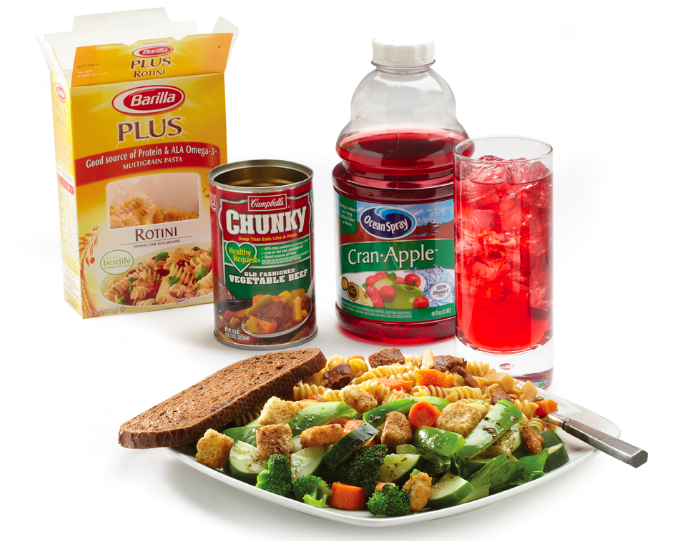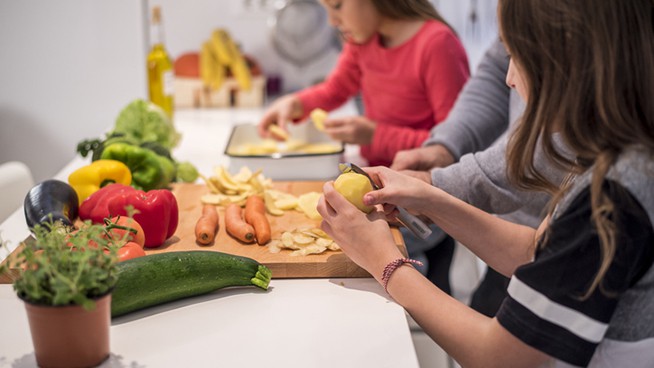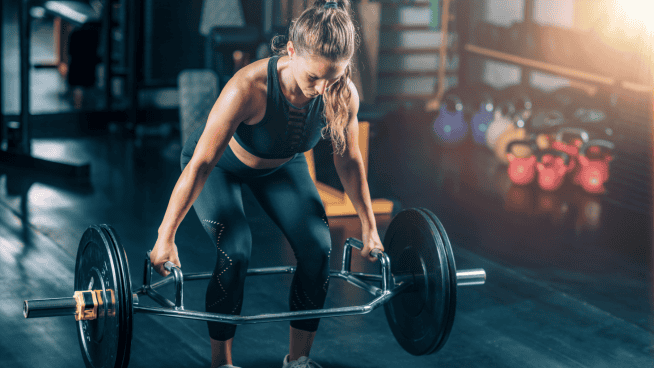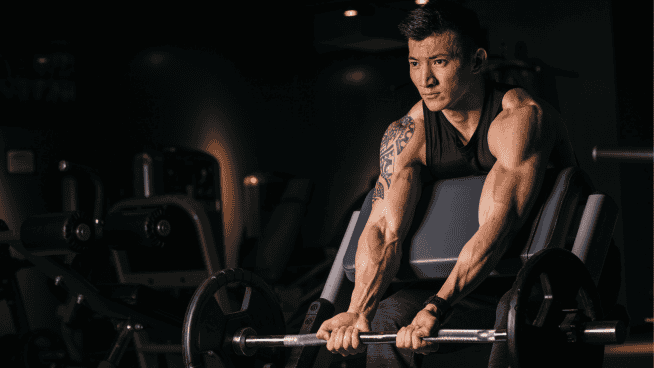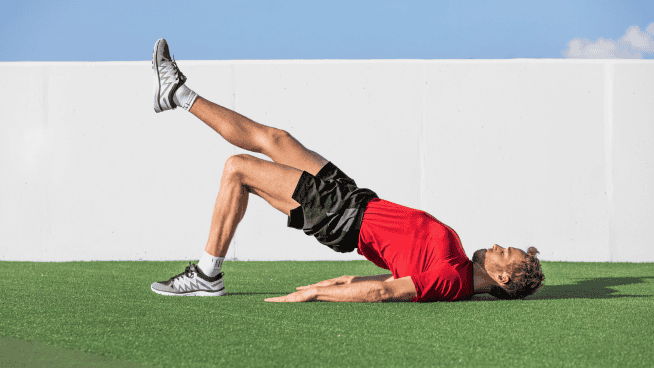What to Eat Before a Game
For an athlete, a proper pre-game or pre-activity meal must provide the body with the fuel it needs to perform—with an emphasis on carbohydrate intake. Of the body’s three fuel sources—carbs, protein and fat—carbs are the primary energy source for exercise. According to Cheryl Zonkowski, University of Florida football nutrition director, consuming carbs prepares athletes’ muscles to work and helps sustain their performance throughout a full workout or game. She says, “Without carbs, your muscles can’t relax and contract ideally, and you’ll feel gassed.”
Zonkowski recommends eating a meal that’s easy to digest two to four hours before activity. It should be comprised of 50 percent carbs, a moderate amount of protein and limited fat. Then, 15 to 20 minutes before activity, eat a few simple carbs (e.g., fruit, crackers and pretzels) for fast-acting energy.
To complete pre-activity nutrition, hydrate properly. The body loses water through sweat, and it’s crucial to drink water or a sports drink like Gatorade to prevent dehydration. Studies have shown that dehydration can negatively impact strength, by up to 25 percent. To maintain fluid levels for peak performance, Zonkowski recommends following this hydration regimen:
- Two hours prior: drink 20 oz. of water/sports drink
- One hour prior: drink 16 oz. of water/sports drink
- 15 minutes prior: drink 8 oz. of water/sports drink
Having sufficient energy is important, but athletes should not eat plate after plate of food before a game. Every athlete has to discover for himself what and when to consume before activity to keep his body adequately fueled and avoid performance-sabotaging stomach woes. But in general, it’s best to avoid large portions and protein-rich or fatty foods—such as steak or fried foods. Zonkowski says, “If you eat too much too close to activity or consume foods that don’t sit well, you can have cramps, stomach sloshing or other gastrointestinal distress.”
Here are a few easy-to-digest pre-game meal options:
Pre-Game Meal Recipes
Perfect Pre-Game Eating
Pre-Game Energy Boosting Supplements
For more hydration tips and details about the role of sports drinks, click the links below:
Gametime Hydration Strategies
All-Day Hydration Game Plan
How to Assess Your Hydration Status
Hydration for the Heat
Formulating a Summer Hydration Plan
RECOMMENDED FOR YOU
MOST POPULAR
What to Eat Before a Game
For an athlete, a proper pre-game or pre-activity meal must provide the body with the fuel it needs to perform—with an emphasis on carbohydrate intake. Of the body’s three fuel sources—carbs, protein and fat—carbs are the primary energy source for exercise. According to Cheryl Zonkowski, University of Florida football nutrition director, consuming carbs prepares athletes’ muscles to work and helps sustain their performance throughout a full workout or game. She says, “Without carbs, your muscles can’t relax and contract ideally, and you’ll feel gassed.”
Zonkowski recommends eating a meal that’s easy to digest two to four hours before activity. It should be comprised of 50 percent carbs, a moderate amount of protein and limited fat. Then, 15 to 20 minutes before activity, eat a few simple carbs (e.g., fruit, crackers and pretzels) for fast-acting energy.
To complete pre-activity nutrition, hydrate properly. The body loses water through sweat, and it’s crucial to drink water or a sports drink like Gatorade to prevent dehydration. Studies have shown that dehydration can negatively impact strength, by up to 25 percent. To maintain fluid levels for peak performance, Zonkowski recommends following this hydration regimen:
- Two hours prior: drink 20 oz. of water/sports drink
- One hour prior: drink 16 oz. of water/sports drink
- 15 minutes prior: drink 8 oz. of water/sports drink
Having sufficient energy is important, but athletes should not eat plate after plate of food before a game. Every athlete has to discover for himself what and when to consume before activity to keep his body adequately fueled and avoid performance-sabotaging stomach woes. But in general, it’s best to avoid large portions and protein-rich or fatty foods—such as steak or fried foods. Zonkowski says, “If you eat too much too close to activity or consume foods that don’t sit well, you can have cramps, stomach sloshing or other gastrointestinal distress.”
Here are a few easy-to-digest pre-game meal options:
Pre-Game Meal Recipes
Perfect Pre-Game Eating
Pre-Game Energy Boosting Supplements
For more hydration tips and details about the role of sports drinks, click the links below:
Gametime Hydration Strategies
All-Day Hydration Game Plan
How to Assess Your Hydration Status
Hydration for the Heat
Formulating a Summer Hydration Plan

